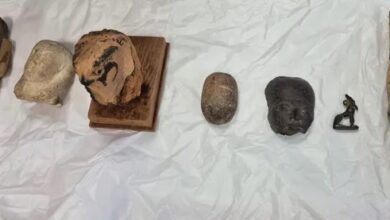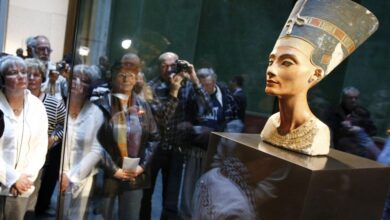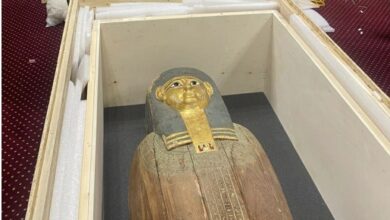An Egyptian expedition team working in Luxor discovered remnants of ancient Islamic and Coptic buildings, the Ministry of Antiquities announced Wednesday.
The remnants include churches, minarets and domes and are located in the Luxor Temple area along the Avenue of the Sphinxes, according to a ministry statement.
The team found remains of an ancient church that dates back to the Ptolemaic era (AD 5), built with stone blocks typical of ancient temples. The church reflects the style of ancient Egyptian architecture in its stone cornices, columns and ceiling vault.
As for the Islamic monuments, the expedition team found the authentic architrave of a mosque called al-Muqashqash, as well as the minaret and dome of another mosque, Abul Hajjaj.
Other findings included a sandstone river gauge, an ancient pot used during Christian rituals and an oil squeezer discovered near the church.
The team also discovered pieces of pottery, some ornamented, and house walls made mainly from bricks, which date back to the late Coptic era and the start of the Islamic period.
The 3-km Avenue of the Sphinxes, which links the Karnak and Luxor temples, was a road used for ceremonies and religious processions during the pharaonic era.
Translated from the Arabic Edition




